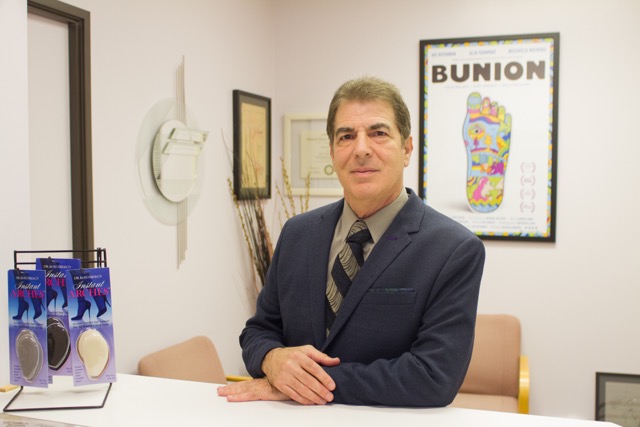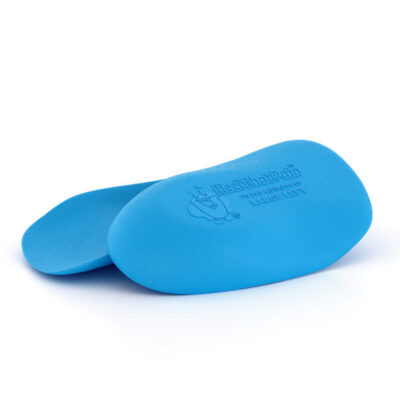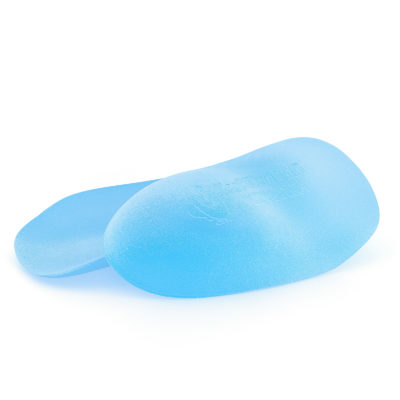 The podiatrists and specialists who dedicate their lives to eliminating heel pain and keeping our toes, arches, and insteps healthy see a lot of feet in a lifetime.
The podiatrists and specialists who dedicate their lives to eliminating heel pain and keeping our toes, arches, and insteps healthy see a lot of feet in a lifetime.
And after thousands of exams, x-rays, MRIs, and observations, there’s no one better to offer a few gems of advice about plantar fasciitis and heel pain.
That’s why we reached out to a few of the top podiatrists in the United States to learn their #1 piece of advice for anyone who suffers from heel pain or plantar fasciitis:
Click here to get doctor-recommended Heel Seat Inserts!
Dr. Neal Blitz, DPM, FACFAS
Dr. Neal Blitz, DPM, FACFAS, is a force to be reckoned with in the world of feet. Patients from all over the world flock to his private practices in New York City and Beverly Hills. Not one to back down from even the most challenging of cases, Dr. Blitz has earned the nickname “Superman of Feet.”
When asked about his #1 piece of advice for anyone who suffers from heel pain, Dr. Blitz says, “When dealing with chronic heel pain, it’s important to consider that heel pain may be compensatory and secondary to a different structural problem in the foot. In my New York and Beverly Hills foot surgery practice, I have performed bunion surgery or flatfoot surgery when these problems co-existed as the primary problem causing the heel pain, and the end result was resolution of the heel pain.”
Dr. Steven Rosenberg, DPM

Dr. Steven Rosenberg, DPM
Dr. Steven Rosenberg is a private-practice podiatrist serving West Los Angeles, Beverly Hills, and Santa Monica. With more than 32 years of experiences (including 18 years as an LA Marathon race doctor), he has also traveled extensively across the United States to lecture on homeopathic treatments for soft-tissue foot and ankle problems.
Dr. Rosenberg offers this advice to anyone who suffers from heel pain:
“Heel pain can be treated–and you usually do not need to consider surgery. First it’s important to find out the cause of the heel pain by taking an x-ray. Once the cause has been determined, it can then be treated effectively. Heel pain is usually caused by a spur that develops at the inner side of the heel bone known as the medial calcaneal tubercle or inflammation at the junction where the medial slip of the plantar fascia attaches to the inner part of the heel bone, known as the medial calcaneal tubercle.
“The reason these foot problems develop is often because of abnormal foot pronation, which is the arch of your foot collapsing and flattening out. The collapsing of the arch pulls the tissue around the heel bone, and you either eventually develop a heel spur or localized inflammation at that site, causing heel pain.
“Heel pain can be treated conservatively with custom orthotics or arch supports. If those aren’t effective, a cortisone injection is usually the next step.”
Dr. Bela Pandit, DPM, FACFAS

Bela Pandit, DPM, FACFAS
Dr. Bela Pandit (@Mzhighheelz) is a nationally recognized, double board-certified foot and ankle specialist who hails from Evergreen Park, IL and treats patients at Pandit Foot and Ankle Clinic.
Her expertise and industry-leading foot and ankle diagnostic treatments mean she is a popular point of contact for national media in exploring the latest trends, as well as tried and true advice.
Dr. Pandit offered the following advice for anyone who suffers from heel pain:
“Ice is a terrific aid to help minimize most causes of heel pain. Using an ice pack wrapped with a damp cloth with a couple of drops of essential mint or menthol oil will be even more soothing! Try that for twenty minutes at a time”
Robert A. Kornfeld, DPM

Robert A. Kornfeld, DPM
Dr. Robert Kornfeld is New York-based podiatrist who specializes in holistic and integrative medicine at the Chronic Foot Pain Center. He not only provides sought-after treatment for chronic foot pain and injuries, but also founded the esteemed Institute for Integrative Podiatric Medicine, a teaching institute for the profession of podiatry, and hosts his own radio show: “The Holistic Foot and Health Care Show”
His #1 piece of advice for individuals who suffer from heel pain is simple yet profound:
“If you treat the cause of your pain (for instance, the mechanisms behind the failure of your immune system to heal the cellular injury) rather than the pain itself (the symptom), then you will find long lasting freedom from the pain”.
Dr. Nabil Ebraheim, MD

Dr. Nabil Ebraheim, MD
Dr. Nabil Ebraheim has more than 30 years as a top orthopedic surgeon. He is also the professor and chair of orthopaedic surgery and the Trauma Fellowship Director at the University of Toledo Medical Center. Dr. Ebraheim has published more than 450 journal articles, 600 educational YouTube videos about heel and foot pain, and is the recipient of numerous awards in the field of podiatry and medicine.Dr. Nabil Ebraheim, MD
When it comes to heel pain, this is his top piece of advice:
“It’s important to know that plantar fasciitis is the most common cause of heel pain. That said, don’t be discouraged by heel pain! Most often, treatment can be done at home with simple measures such as Achilles tendon stretches, plantar fascia-specific stretching programs, as well as non-steroidal anti-inflammatory drugs/NSAIDS (It is important to avoid steroids, as this may cause fat pad atrophy or possibly cause a rupture of the plantar fascia.) These should be the first methods of treatment, and a majority of patients can be treated without surgery. Surgery is a last resort and only done in cases where nonsurgical treatments have not been successful after 6-12 months. Heel cups, shoe inserts, and night splints are also helpful in treating pain.”
The Consensus:
While every expert has his or her own areas of speciality and treatments when it comes to heel pain and plantar fasciitis, nearly every expert agrees that the vast majority of cases of plantar fasciitis and heel pain can be successfully resolved with conservative measures.
Although heel pain from plantar fasciitis can be severe, bringing to mind fears about surgery and more invasive treatments, take heart in remembering the advice of these nationally renowned heel pain experts!




Which product would help with Achilles tendinitis?
I am in Nigeria can get any of this treatment wears hear?
Hi Rachel! Good news, we ship internationally 🙂
You can shop any of our products here: https://heelthatpain.com/treatments/ and select your shipping country as Nigeria.
I have plantar fajitas and a heel spur and wear a short boot with small ice pad to bed at night. Ive had numbness in my heel as of late. The PT for the plantar has worked, but nothing seems to effect the numbness. I never go barefooted and have personally made orthodics. Any suggestions?